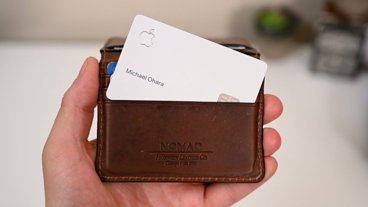Inside the Apple-Verizon iPhone deal: technical planning took 6-9 months
Verizon Communications President Lowell McAdam spoke with Bloomberg about the deal between Apple and Verizon for the iPhone, which took years to reach. He said each company agreed to trade "inside information" about each others' upcoming products and services.
Apple and Verizon also erected CDMA towers at the iPhone maker's Cupertino, Calif., campus, allowing both companies to do extensive testing with Apple's smartphone in an effort to avoid network issues. AT&T's own network issues have been a public relations concern for the company.
One of Verizon's top engineers worked at Apple's campus, helping the company learn CDMA technology, and McAdam himself even personally tested the new Verizon-compatible iPhone before it was announced on Tuesday. The phone is set to go on sale on Feb. 10, and existing Verizon customers will be able to preorder starting Feb. 3.
Negotiations between the two companies even personally involved Apple Chief Executive Steve Jobs and Verizon CEO Ivan Seidenberg. McAdam also said the lack of a Verizon logo on the new iPhone 4 was not a "major issue" for the company.
"We worked probably six or nine months on the technical side of this and saw we could make this work," McAdam said in the interview. "Then we did the commercial side. The commercial side took us a day."
The new, close partnership with Verizon has already lead to information leaks, including numerous reports on the Verizon iPhone announcement well before Tuesday's press conference. And also this week, Verizon's chief financial officer, Francis Shammo, let slip that Apple is planning a new iPad with an integrated CDMA radio that will allow the touchscreen tablet to access Verizon's network without the need for a MiFi portable hotspot.
 Katie Marsal
Katie Marsal










 Chip Loder
Chip Loder
 Andrew Orr
Andrew Orr
 Marko Zivkovic
Marko Zivkovic
 David Schloss
David Schloss

 Malcolm Owen
Malcolm Owen

 William Gallagher
William Gallagher







